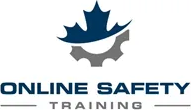Traffic Control Person Training in Canada

The Benefits of Traffic Control Person Training in Canada
Traffic control persons (TCPs), often referred to as flaggers, play a critical role in ensuring the safety of road construction sites, events, and emergency situations across Canada. These individuals are responsible for directing traffic, pedestrians, and vehicles through work zones or areas with special traffic needs. Given the significant responsibility they hold, it is crucial that TCPs receive proper training to ensure the safety of both themselves and the public. In this article, we will explore the numerous benefits of traffic control person training in Canada and how it contributes to creating safer roads and work environments.
- Enhanced Road SafetyThe most prominent benefit of traffic control person training is the enhancement of road safety. TCPs are often situated in high-risk environments, such as construction zones, where traffic patterns are altered and drivers need clear guidance. Training programs equip TCPs with the knowledge and skills needed to manage traffic safely, reduce the risk of accidents, and ensure the smooth flow of vehicles and pedestrians through these areas.
- Compliance with Canadian RegulationsCanadian road safety regulations require the use of trained traffic control persons in certain situations, particularly in construction zones and during special events. Failure to comply with these regulations can result in legal consequences, fines, or work stoppages. Proper training ensures that TCPs and their employers meet the legal requirements, allowing them to operate within the bounds of the law.
- Improved Communication SkillsTraffic control person training emphasizes effective communication skills. TCPs learn how to convey clear signals and instructions to drivers and pedestrians, ensuring that everyone understands and follows their directions. Effective communication is crucial in preventing confusion and reducing the risk of accidents caused by misunderstandings.
- Enhanced Traffic ManagementTrained TCPs have a better understanding of traffic management principles. They learn how to assess traffic conditions, determine the appropriate control measures, and adapt to changing situations. This knowledge enables them to make informed decisions that improve traffic flow, reduce congestion, and maintain safety in dynamic environments.
- Proactive Hazard RecognitionTraffic control person training includes instruction on hazard recognition. TCPs learn to identify potential dangers in their work environment, such as speeding vehicles, distracted drivers, or equipment malfunctions. This proactive approach allows them to anticipate risks and take preventive measures, ultimately minimizing the likelihood of accidents.
- Customized TrainingTCP training programs can be customized to address specific needs and challenges in various situations. Whether it’s traffic control in a construction zone, at a special event, or during emergency response, training can be tailored to meet the unique requirements of each scenario. Customized training ensures that TCPs are well-prepared for their specific roles and responsibilities.
- Emergency Response PreparednessTCPs are often the first responders to accidents and emergencies in their areas of operation. Training programs equip them with the skills and knowledge needed to react effectively in critical situations. They learn how to manage emergency vehicle access, coordinate with emergency services, and provide assistance when necessary, enhancing overall safety in emergency response scenarios.
- Reduction in Accidents and InjuriesBy effectively managing traffic and ensuring the safe movement of vehicles and pedestrians, trained TCPs significantly reduce the risk of accidents and injuries in work zones and special traffic areas. Their presence and guidance contribute to a safer environment for both road workers and the traveling public.
- Boosted ConfidenceTraffic control person training instills confidence in TCPs, helping them feel more secure and capable in their roles. Confident TCPs are better equipped to handle challenging situations, interact with drivers and pedestrians, and make quick decisions. This increased confidence enhances their effectiveness and contributes to overall road safety.
- Cultivation of a Safety CultureImplementing traffic control person training fosters a culture of safety within the organization. When employers invest in the education and training of their TCPs, it sends a clear message that safety is a top priority. Employees are more likely to adopt safe practices and encourage their colleagues to do the same, creating a safer work environment and promoting road safety as a shared value.
Conclusion
Traffic control person training is an essential component of road safety in Canada. By enhancing road safety, ensuring compliance with regulations, improving communication skills, and promoting hazard recognition, it significantly contributes to creating safer roads and work environments. Moreover, it equips TCPs with the knowledge and skills needed to manage traffic effectively, respond to emergencies, and reduce the risk of accidents and injuries.
Investing in traffic control person training is not only a legal requirement but also a crucial step in safeguarding the well-being of TCPs and the public. It is an investment in both safety and efficiency, ultimately benefiting organizations, road workers, and the traveling public as a whole. Trained TCPs not only protect themselves but also play a vital role in ensuring that road users reach their destinations safely, making a significant contribution to overall road safety in Canada.
Click here for an online Traffic Control Person training course.
Click here for Government of Canada Traffic Control information.
Categories
- Aerial Lift
- ATV Training
- Bear Awareness
- Chainsaw Training
- Confined Space
- Defensive Driving
- Forklift Training
- Lockout Tagout
- Online Safety Training
- Overhead Crane
- Pipeline Construction Safety Training
- Propane Handling
- Safety Training Benefits
- Scissor Lift
- Skid Steer Training
- Space Awareness
- TDG
- Telehandler Forklift
- Traffic Control
- Train the Trainer course
- Training Course
- Uncategorized
- WHMIS
- Workplace Harassment and Violence Preventiont
